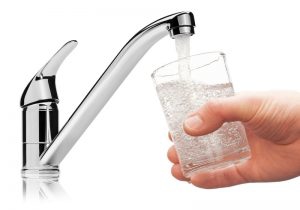You do everything you can to protect your family members from harm. That means anything from checking that everyone’s seatbelt is buckled to applying sunscreen to keeping an emergency fund handy. But protecting your loved ones from illness can prove more difficult.
In fact, the water you use every day may contain contaminants you would never want your family members to ingest. Although the municipal water supply is treated before it gets to your home, this might not be good enough to keep out many of the worst pollutants we always want to avoid.
Is your water really safe to drink? For water treatment services in New Port Richey, FL, call our team and read on to find out what could be wrong with your water supply.
Common Water Contaminants
According to the Water Quality Association, many of the worst contaminants in your water supply are difficult to detect. Many homeowners go years without knowing about high levels of contamination in the water they use every day. And yet, the very names of the most common pollutants found in water supplies can be frightening:
- Nitrates/Nitrites
- Ammonia
- Lead
- Arsenic
- Bacteria
- Viruses
- Mercury
You may not be able to detect a change in taste or smell of your water, and it might not change appearance either. Some of these contaminants are linked to chronic illness, while others can make people sick for a short while. Either way, these are not what you want to find in anything your family members eat or drink.
Chemical Additives
Some of the additives found in water supplies are put there on purpose by your municipality. Chemicals can sterilize contaminants in the water—but that doesn’t mean you want your family members to drink them.
Fluoride and chlorine or chloramine are the main chemical additives many people object to having in the water. Fluoride is added for dental hygiene, while chlorine is meant to kill off germs. You’ll find varying levels of these chemicals in the water supplies of different cities, but most claim they are harmless.
Some studies, however, show large amounts of fluoride may be linked to certain neurological conditions. Chlorine can change the taste of water, but most potential health risks are rare. Still, it’s understandable that you may want to avoid any potential danger to your family.
Water Treatment Solutions
Whether you get your water from a public supply or a private well, it’s important to have your water tested. Plumbing companies and private labs can test your home’s water, or you may be able to request a test from your municipality. If you learn of any unwanted results, it’s time to take action.
Point-of-use sink filters and filtered pitchers don’t do anything for the water you use to bathe, brush your teeth with, wash fruit, and more. Instead, consider one of these whole-home approaches.
- Water filtration system – A water filtration system can target many specific contaminants including those listed above and some sediment found in hard water.
- UV water purifier – UV water purifiers kill off living organisms in the water, like bacteria.
- Reverse osmosis – Reverse osmosis systems are perhaps the most effective of the water treatment systems available today, with a thin membrane that uses reverse osmosis to allow only pure water to pass through and not much else.
For water filtration in New Port Richey, FL, call the friendly, helpful team at Continental Plumbing Services, LLC.

